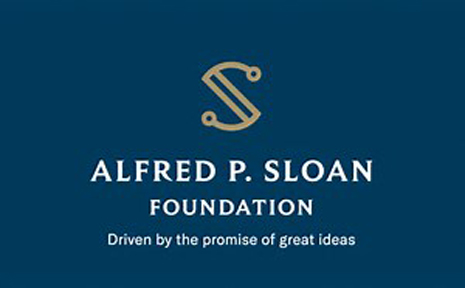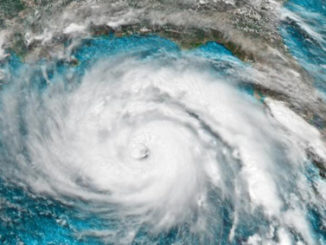
NEW YORK (TIP): Awarded annually since 1955, the fellowships honor extraordinary US and Canadian researchers whose creativity, innovation, and research accomplishments make them stand out as the next generation of leaders.
“Sloan Research Fellows are shining examples of innovative and impactful research,” says Adam F. Falk, president of the Alfred P. Sloan Foundation. “We are thrilled to support their groundbreaking work and we look forward to following their continued success.”
Open to scholars in seven scientific and technical fields—chemistry, computer science, Earth system science, economics, mathematics, neuroscience, and physics—the Sloan Research Fellowships are awarded in close coordination with the scientific community.
More than 1000 researchers are nominated each year for 125 fellowship slots. Winners receive a two-year, $75,000 fellowship which can be used flexibly to advance the fellow’s research.
Nominations for the 2024 Sloan Research Fellowships will open on July 15, 2023.
Here is a list of 13 Indian origin Sloan Research Fellows:

Shaama Mallikarjun Sharada is the WiSE Gabilan Assistant Professor in the Mork Family Department of Chemical Engineering and Materials Science at the University of Southern California. Her research focuses on developing catalysts and photocatalysts to meet energy efficiency and sustainability goals.
She received her undergraduate degree in Chemical Engineering from the Indian Institute of Technology, Bombay, and PhD from the University of California at Berkeley, where she also served as a software developer for Q-Chem, a quantum chemistry package.
She was a postdoctoral researcher at Stanford University before joining USC in Fall of 2017.

Eshan Chattopadhyay is an assistant professor in the Department of Computer Science at Cornell University. His main research area is computational complexity theory, a discipline within theoretical computer science that tries to understand the intrinsic hardness – or ease – of problems concerning computational resources. Future work will explore the intrinsic need for randomness for efficient algorithm design.

Anirudha Majumdar, an assistant professor of mechanical and aerospace engineering at Princeton University works on building autonomous robotic systems.
Currently, most robots are deployed in tightly controlled environments, like factories. Majumdar and his lab are working to build drones and other robots that can operate safely in a more complex environment, enabling them to see obstacles and adapt to diverse and changing conditions.
Majumdar joined the Princeton faculty in 2017 and leads the Intelligent Robot Motion Lab. He received a doctorate from the Massachusetts Institute of Technology, a bachelor’s degree from the University of Pennsylvania and postdoctoral research in Stanford University’s Autonomous Systems Lab.

Rashmi Vinayak, an assistant professor in the Computer Science Department at Carnegie Mellon University leads the CMU TheSys research group. She is also a part of the Parallel Data Lab (PDL).
Her research interests broadly lie in computer/networked systems and information/coding theory, and the wide spectrum of intersection between the two areas.
She received her Ph. from UC Berkeley in 2016 where she worked on resource-efficient fault tolerance for big-data systems and was a postdoctoral scholar at UC Berkeley’s AMPLab/RISELab from 2016-17.

Tripti Bhattacharya, Thonis Family Professor and a member of the Earth and environmental sciences faculty at Syracuse University, uses evidence from the geological past to understand how rainfall will change in the future as a result of global warming.
Since joining the university in 2018, Bhattacharya has been awarded over $2 million in research funding. Among many distinctions, she was recognized with the University’s Meredith Teaching Recognition Award in 2021 and has been an invited presenter at the American Geophysical Union Annual Meeting in 2019, 2020 and 2022.
She also served as one of eight leading climate scholars at a workshop organized by the National Academies of Sciences, Engineering and Manasi Deshpande is an assistant professor in Economics at the University of Chicago. Her research areas are empirical public finance and labor economics, with a focus on the effects of social insurance and public assistance programs and their interaction with labor markets.
Deshpande received her PhD in Economics at MIT and has been at the University of Chicago since 2016. She is also Co-Director of Graduate Placement in the Kenneth C Griffin Department of Economics.

Bhargav Narayanan, assistant professor of Mathematics at New Jersey’s Rutgers University is broadly interested in combinatorics, probability theory and related areas in statistical physics and theoretical computer science.
Before moving to Rutgers, he was a research fellow at St John’s College, Cambridge and a member of its Department of Pure Mathematics and Mathematical Statistics.
He received his PhD from the University of Cambridge. He also has a Master’s in Math from Cambridge and a BTech in Computer Science from the Indian Institute of Technology, Madras.

Mubarak Hussain Syed is an assistant professor of Biology at The University of New Mexico. He and his team in the Neural Diversity Lab investigate the genetic and molecular mechanics regulating neural diversity ̶ from stem cells to neural circuits.
The findings will help uncover the fundamental principles of nervous system development and potentially to understand and treat neurodevelopmental disorders such as epilepsy, schizophrenia, ADHD, and autism.

Debanjan Chowdhury is a theoretical physicist at Cornell University interested in addressing the fundamental principles that govern the emergence of new collective phenomena involving trillions of interacting electrons in solid-state materials.
His main focus is developing theoretical methods that can describe and predict the quantum behavior of electrons leading to exotic forms of superconductivity and magnetism. His work probes the relationship between the time scales that govern collisions among electrons in a class of highly unusual and “strange” metallic states and their ability to become dissipation less, high-temperature superconductors.

Tejaswi Venumadhav Nerella, is an assistant professor in the Department of Physics at the University of California, Santa Barbara. As a theoretical astrophysicist, his explorations involve gravitational waves and cosmology.
He scours data collected by gravitational wave detectors such as LIGO and VIRGO for ripples in spacetime caused by collisions of massive and dense compact objects like black holes and neutron stars.
Nerella hopes “to expand the gravitational-wave discovery space and use our detections to answer fundamental questions in other areas of astronomy, such as stellar- and galaxy-evolution and cosmology.”

Sagar Vijay, also assistant professor in the Department of Physics at the University of California, Santa Barbara is a theorist in the realm of condensed matter physics.
He is interested in the interactions of collections of atoms — interactions that can produce fascinating phenomena and states of matter.
He plans to “advance our fundamental understanding of quantum entanglement and its macroscopic manifestations in both ordinary matter and programmable quantum devices.”

Saurabh Chitnis, Assistant Professor at the Department of Chemistry at Dalhousie University in Nova Scotia, Canada, describes himself as an “inorganic chemist,” who “explores the part of the periodic table that doesn’t get a lot of attention.”
He sees the award as “a validation of our curiosity-driven approach, an approach that is all about just looking at the microscopic features of something and trying to understand the macroscopic consequences of its structural beauty.”

Sushant Sachdeva is an assistant professor of Mathematical and Computational Sciences at the University of Toronto, Mississauga, and a faculty affiliate at the Vector Institute.
His interests include algorithms and their connections to optimization, machine learning, and statistics. His recent research focuses on the design of fast algorithms for graph problems.
Before joining the University of Toronto, he was a research scientist at Google. He completed his postdoc at Yale with Dan Spielman in 2016, his PhD from Princeton in 2013, and his BTech from IIT Bombay in 2008.
He is the recipient of the Google Faculty Research Award (2017), the Simons Berkeley Research Fellowship (2013), and the IITB President of India Gold Medal (2008).





Be the first to comment